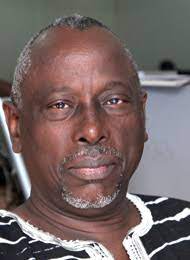The world over, there are certain things that decent people simply do not do. No decent person looks at an individual who has survived some horrible illness and then turns away in disgust, spits on the ground and mutters under the breath: why did this creature survive? He should have died.

The world over, there are certain things that decent people simply do not do.
No decent person looks at an individual who has survived some horrible illness and then turns away in disgust, spits on the ground and mutters under the breath: why did this creature survive? He should have died.
And then go on to make that recovery impossible.
No one in their right mind sees a person who has been set upon by thugs and hacked to near death, but is mercifully recovering from his wounds, and turns away in anger at the very thought of his recovery.
You cannot say: how could he have survived such an awful ordeal? And then as if that was not enough, you go out to look for his assailants and ask them why they did not finish him off.
Then they gleefully tell you that it was actually a horrible mistake that they didn’t kill him like they had done thousands of others and that if they had another chance, they would do make a better job of it and leave nothing to vex you and disturb your peace.
Only the callous and stupidly arrogant are capable of such despicable acts. Only they can dance on the graves of the dead like witches and other malevolent creatures for whom doing such ghastly things is in their very nature.
Decent people don’t do such awful things. They are more understanding, empathise with those who fall and get hurt, and encourage them when they get up and start to move again, fast. They applaud and support those who defy the odds, exceed expectations, get back to normal and move rapidly forward.
Sadly, in our world, decency is not as common as we would wish. Good sense and sound judgement are increasingly giving way to irrational conduct, stupidity and inexplicable hatred.
In recent months, Rwandans have been on the receiving end of acts completely devoid of any notion of decency. Most have come from the country that sent missionaries around the world to teach us to love our neighbours as we do ourselves, to do unto others what we would like them to do unto us, and to love animals and not be cruel to them.
Not that we did not know of these and other virtues, and practiced them daily. Only this time they were baptised Christian and made to appear completely novel.
Last Tuesday, July 21, the ITV, a British television broadcaster, went against these virtues and common decency and broadcast an interview with a one Jean Kambanda.
Now, Kambanda is not an ordinary Rwandan, selected for his exceptionally brilliant views on an interesting subject. He is a former prime minister of a government that oversaw the Genocide against the Tutsi in Rwanda.
He is a convicted genocidaire, convicted on his own plea of guilty. He is not the sort of person, his former status notwithstanding, that decent people would give a platform to spread his views to the world. Yet the ITV did, and the ITV is a respectable media organisation.
Would the ITV interview and broadcast the opinions of a convicted NAZI official, or even one suspected of NAZI ideology or sympathies? Most certainly not. And yet the ITV is a fair, objective and balanced media house.
It is well-known that the British media could never give airtime to any Irish Republican Army (IRA) official or anyone linked to the organisation during the conflict in Northern Ireland.
Even many years after the troubles (as the conflict was known) ended, the very thought of Prince Charles, heir to the British throne, meeting with Gerry Adams, a Member of Parliament and leader of Sinn Fein political party, generated a lot of controversy.
They met in May this year. And yet the media has the honourable duty of giving all sides to a story, including the hidden or untold bits.
So why could ITV find it so compelling to seek and broadcast the opinions of an avowed genocidaire? Similarly, what compelling logic drove the BBC to look for well-known and self-confessed Genocide deniers and disseminate their views to the whole world?
What legal imperative led Scotland Yard to arrest Lt General Karenzi Karake, one of the officers who stopped the Genocide?
Obviously, these are not unconnected events, but elements of a wider pattern of subversion.
First, they are attempts to rewrite our history. This involves creating a narrative in which villains are absolved of their sins and turned into victims before they are rehabilitated as some sort of saints. The same narrative seeks to turn real heroes into demons to make it easier to condemn them to eternal damnation.
The purpose of this historical distortion is to deny the Genocide against the Tutsi ever happened.
Second, and as a consequence of this, they seek to rob the current leadership of Rwanda, especially President Paul Kagame, of their historical role in ending the Genocide. Essentially, they want to delegitimise the leadership, especially at a time when Rwandans are asking the President to continue leading them.
Third, and as part of a wider context, these are some of the methods of putting down countries that show a measure of success and independence. They must be distracted and derailed.
As these things happen, we are constantly reminded of the noble role of the media in telling the truth as it is, without bias. Sometimes we see a different role: distortion of the truth and the application of different standards. Occasionally, we also feel the eerie presence of witches.
jorwagatare@yahoo.co.uk


